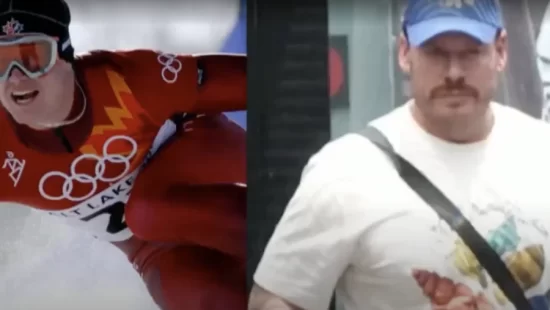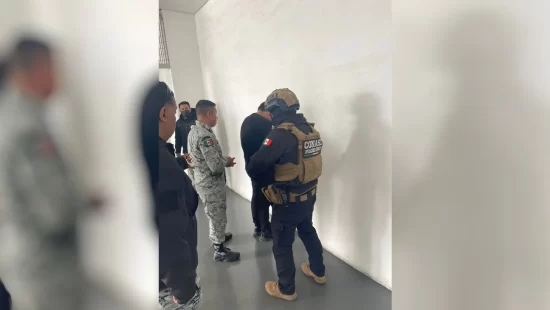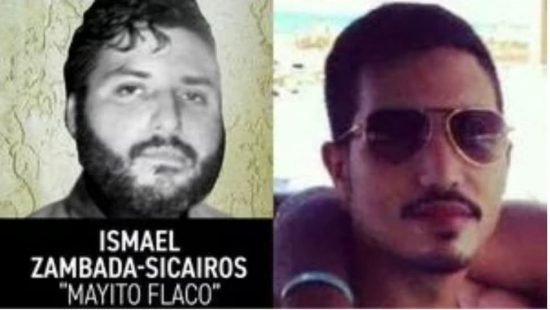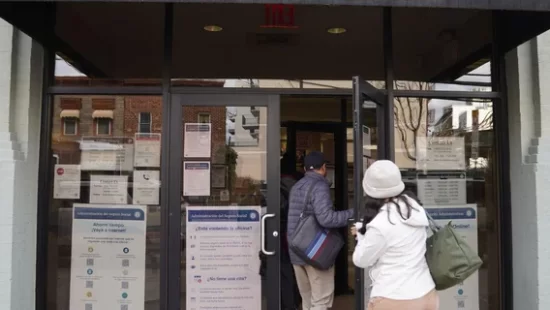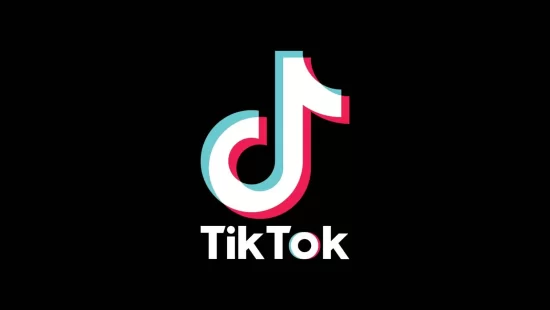My boss has been great—he’s American, and he cares about what’s happening to our community. Honestly, about 70% of my volunteers are ‘gringos,’ more than Latinos,” she says.
Vanny Arias expresses the desperation being experienced by the Latino community affected by immigration raids in Los Angeles.
“The need is growing day by day, and this won’t stop. We don’t know what our situation will be in a few months. There are many families in need, and those of us who are organizing donations can’t keep up. It makes me so angry that the politicians and the city of Los Angeles aren’t doing enough. They like to make statements and pose for photos, but they have no idea what the community is going through,” says Vanny, a Highland Park resident who runs NELA Food Distribution, which supplies food to around 215 families in nearby neighborhoods.
It’s the daily fight Vanny faces with the hope of making it through. Every two weeks, dozens of volunteers respond to her call at the bar where she works, The Off Beat Bar, where food supplies are collected and organized for distribution—either delivered directly to families or distributed at a designated meeting point, depending on the arrangement.
“There’s a lot of fear among the families. We help however we can—not only with food, but for many we also help by doing laundry or walking their dogs. There’s a lot of pain in the community. I have three jobs, a home, and kids, and even so, I can’t stop. I know that if I stop, if I rest, those people will be left with nothing, just waiting for someone to come help them,” she adds.
Vanny has reached out to city council members and other leaders for help, but the response hasn’t been what she hoped for. Councilmember, Ysabel Jurado (D-14)—representing the area where these families and volunteers live—has not offered support nor attended previously scheduled meetings.
“To me, it feels like an insult. Supposedly, the city gave hundreds of thousands of dollars to help these families. Where is that money?” she asks. “I’ve told the councilmembers’ teams—because it’s hard to even see them in person. They respond with evasive answers. The help never arrives,” she says.
Life isn’t easy for Vanny, either. She goes to bed at 2 AM and gets up at 5 AM to get her son ready for school. Then she comes back, rests a little, goes to clean the bar where she works, then bartends there in the afternoon, and at night organizes events and sells food on the street.
Vanny comes from a very poor family. Her Salvadoran mother worked as a seamstress under harsh conditions and for very low wages. There was never enough. Vanny had to go out on the streets with her mom, looking for help to survive. “We’d collect coins to be able to buy a pack of hot dogs,” she recalls.
From those memories came her spirit to help others. Vanny had her first child at 18, followed by a daughter and another son. Her relationship didn’t work out, and she had to take on all the responsibilities herself.
“I remember that during those hard times, I found people who gave me a hand. People who saw me walking down the street carrying my kids and couldn’t believe the effort I was making. Later, they’d show up with strollers or some other kind of help. I’ve always worked—I haven’t had another choice—so when the immigration raids against our community began, I started organizing NELA Food Distribution. I asked my boss to let me receive donations and organize distribution there. My boss has been great, and he cares about what’s happening to our community. About 70% of my volunteers are ‘gringos,’ more than Latinos,” she says.
The community’s problem is far from over. If it weren’t for these food donation centers, things would be in chaos. It’s the community itself that’s fighting for the community. Both the government and the politicians have fallen behind.
Life isn’t easy for Vanny, either. She goes to bed at 2 AM and gets up at 5 AM to get her son ready for school. Then she comes back, rests a little, goes to clean the bar where she works, then bartends there in the afternoon, and at night organizes events and sells food on the street.
“There are days when I feel like I can’t take it anymore. I get depressed and anxious. My foot is injured, and I need surgery. Like I said, I have three kids—but with this work, I now have hundreds of children. At night I think about needing diapers because there are babies who don’t have any, or milk, or food. Since we distribute food every two weeks, sometimes families call me saying they’ve run out of everything. I use my own money to go out and buy them what they need—or I ask others for help and deliver it myself. And the politicians? They just want to take pictures and say they’re helping. It makes me so angry—I’ll say it again: they don’t know what’s really happening in the community.”
She pauses for a moment. Through the phone, you can hear how painful it is for her to talk about all this.
“In this work, there’s no white flag. If I fall, families fall. If I fall, my children fall. When I feel like I can’t go on, I listen to the messages from the families—I have them saved. They say things like, ‘You are a light. We wouldn’t know what to do without you. God bless you,’ and things like that,” she says.
The community’s problem is far from over. If it weren’t for these food donation centers, things would be in chaos. It’s the community itself that’s fighting for the community. Both the government and the politicians have fallen behind.
“We don’t see the light at the end of the tunnel. I’m scared of what might happen,” she concludes.

